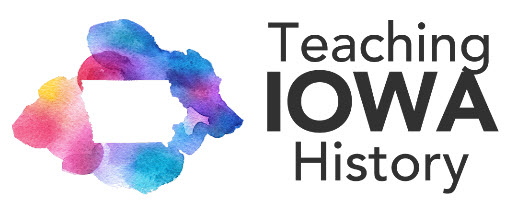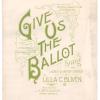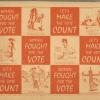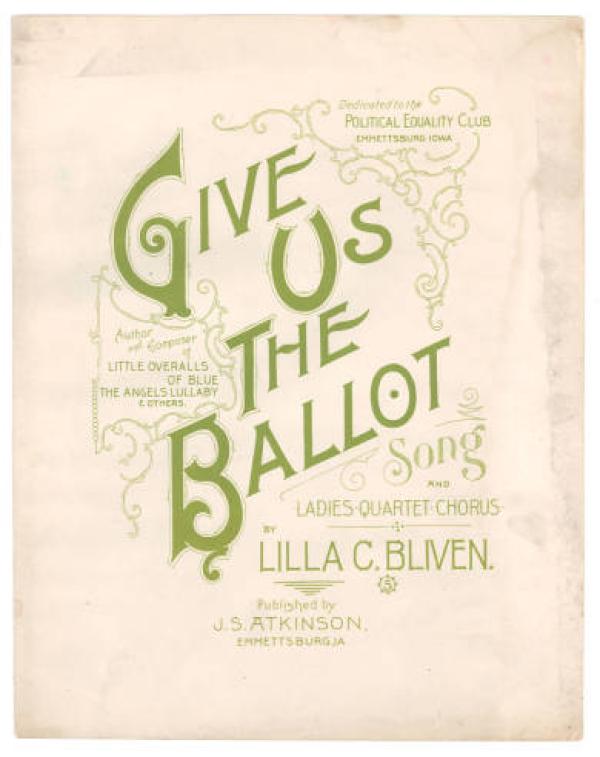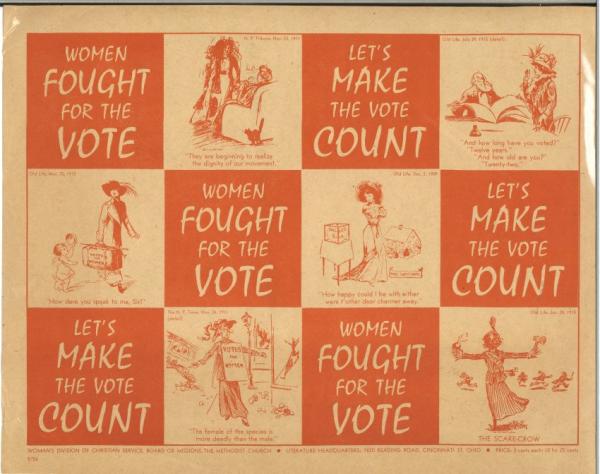Suffrage Still Happening
| Grade | 9th -12th Grades | Class | U.S. Government | Length of Lesson | 50 Minutes |
| Lesson Title | Suffrage Still Happening |
| Unit Title | Voting Rights |
| Unit Compelling Question | Why are voting rights important? |
| Historical Context: The Women's Suffrage Movement was a national movement across the country which started in the late 19th Century with the efforts to get the right to vote and other civil rights that had been withheld from women. In Iowa, the suffrage movement was faced with a lot of resistance and various suffrage proposals were presented to the state legislature but none were able to pass and change the state constitution. One of the biggest proponents for not allowing women to vote was the liquor and alcohol industry in the state because the suffrage movement also promoted the prohibition movement. The movement gained some footing when the 1894 Iowa legislature granted partial suffrage and allowed women to vote on bond issues but not become candidates or vote in formal elections. Across the country, women were fighting for the vote until the Nineteenth Amendment was passed in 1920 that stated that the right to vote could not be denied on the basis of sex. |
|
| Lesson Supporting Question | |
| Lesson Overview | Students will be analyzing and critiquing the forms of propaganda and campaigning that the women and others would be using during this time to spread the message of voting rights. Students will be going through the primary resources and dissecting the meaning and interpreting what the sources were trying to communicate during the time. |
| Primary Sources Used |
|
| Resources Needed | https://docs.google.com/document/d/1sg--bRSFfiKDd5g7Raw0cp7KzH6CJ_igpf_eWi3x-iY/edit |
| Standard | |
| Lesson Target | Students will be able to read and interpret the meanings of the phrases in the song and on the poster.;Students will be able to understand the meaning of lens and perspective when looking at primary resources.;Students will speculate the impact of these types of issue advocacy and explain how they would have been important for this campaign for equal rights. |
| Lesson Themes | Civil Rights, Political System, Women's Experience |
|
| Formative Assessment (How will you use the formative assessments to monitor and inform instruction?) |
Document Worksheet: This will be a form of formative assessment that the students will be turning in at the end of the period to show that demonstrated the ability to work with primary resources and were able to interpret the sources to answer questions. |
| Summative Assessment (How does the lesson connect to planned summative assessment(s)?) |
| Author | Katherine Keeling | Created | Last Edited | ||||
| Reviewer: Chad Christopher, History Education, University of Northern Iowa | |||||||
| Lesson Plan Development Notes: Teaching Methods, University of Northern Iowa, Fall 2019 | |||||||
